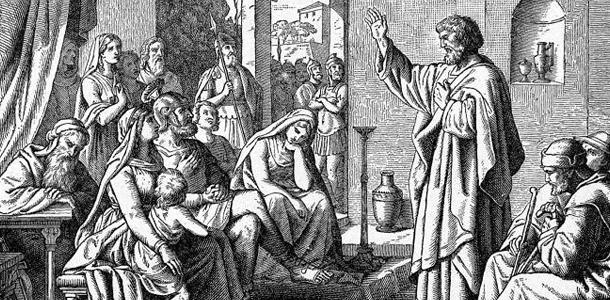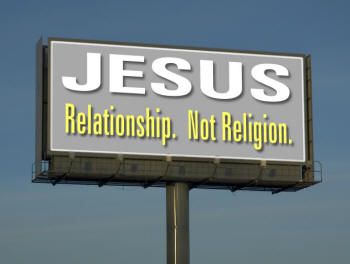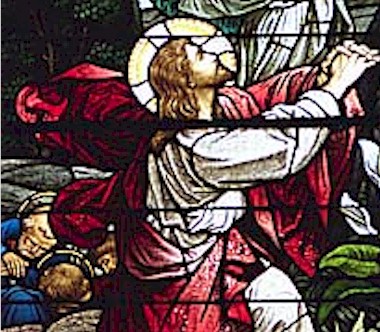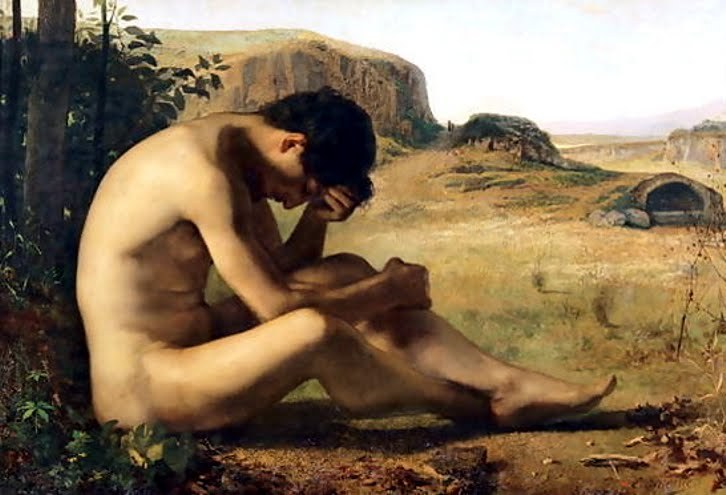"I will appoint shepherds for them who will shepherd them so that they
need no longer fear and tremble; and none shall be missing, says the
Lord." (Jer 23:4)
In this passage we have cause for joy, but
also a cause for concern—joy because of what the prophet proclaims and
concern because of what our brothers are saying. In this passage I see a
disturbing trend where Protestants often ignore passages like this. Now
it is not that many err completely but rather that there needs to be
greater nuance in our treatment of this topic. Now, some take the notion
"Jesus is the high priest" to mean that he is the only priest with
authority, while others take it to mean that we all share equally in the
priesthood that's the end of it.
But this is
a prophetic message from Jeremiah, and we must remember that there are
many types of prophetic utterances: some foretell God's wrath, His
mercy, destruction, restoration, the end of days, or the coming of the
New Age, i.e., the age of Christ. This proclamation (Jer 23:1-8) speaks
of a passing away of an old order of priests, namely the Jewish priests
(of his time) who engaged in idolatry and injustice. It then speaks of
the establishment of a new order of priests and the reunification of the
people of God from many lands. How is this clear? Jeremiah obviously
calls these wicked priests the "shepherds who mislead and scatter my
flock" (23:1) but then he uses "shepherds" again as those who will guide
the people of God—these men are also priests. This message also clearly
speaks of the coming of Christ for it says "I will raise up a righteous
shoot to David" (23:5).
 |
| He prophesied all these things amidst the slow, painful, and gradual destruction of Jerusalem spiritually and physically. |
Some will claim that we are all part of
a universal priesthood and that we are made priests by virtue of His
sacrifice. Now, we are indeed all called to all share in the priestly,
prophetic, and kingly offices of Christ's ministry. But how, and in what
way? First, we are all baptized to new life and by virtue of true
baptism in the name of the Father, Son, and Holy Spirit we enter into
the Body of Christ, the Church. Now, some have excised themselves from
this union through false doctrine and we urge all of them to consider
carefully their separation from the Body with whom they cannot live
without. This Body, nevertheless, is something that we enter and become a
part of through holy Baptism. Since each of us become a member of the
Body of Christ we are likewise sharers of His mission—the salvation of
all souls.
We participate in the mission of Christ as priest,
prophet, and king in the manner which we live our lives. We do this when
we work towards the salvation of souls in the individual circumstances
of our lives. In this way those who proclaim that we are saved just by
an act of faith cheapen the mission of Christ. They do not cheapen it by
their zeal, for they bring others to believe in Christ. But they
cheapen this mission by not considering the many parts of this
mission—that is to say they do not consider the many parts of the Body
and their roles in this mission. If faith was the sole purpose of the
mission then there would be no need for teachers, preachers, and
shepherds because the only teacher and shepherd would be God. By this I
mean that many proclaim that only the Holy Spirit guides them. We do not
deny His guidance but we reject that the Holy Spirit does not inspire
us to lead others when necessary and follow others when necessary. God
does not only give us Himself but He also gives us each other so that we might be lead to Him (and in
specific ways).
 |
"It is an error, nay more, a very heresy, to seek to banish the devout
life from the soldier’s guardroom, the mechanic’s workshop,
the prince’s court, or the domestic hearth. Of course a purely
contemplative devotion, such as is specially proper to the
religious and monastic life, cannot be practised in these outer
vocations, but there are various other kinds of devotion well-suited
to lead those whose calling is secular, along the paths of
perfection."
~Introduction to the Devout Life, St. Francis de Sales | |
Now it is true that everything good comes from
God, but it is also true that not everything is God. Indeed "the very
differences which the Lord has willed to put between the members of his
body serve its unity and mission" (Catechism of the Catholic Church,
sec. 873). Some fulfill this mission as mothers, children, laborers,
teachers, and priests. Others share in this mission by the virtues they
have been given by the spirit such as humility, prudence, and love. All
of these are parts of the one Body of Christ; all are not equal but work
towards an equal goal.
So we are called to that ministry which
Christ exercised—but if we all merely call ourselves priests of the same
kind would we not also all be called shepherds? Who among us then are
the sheep? Jer 23:1-8 clearly speaks of gathering all sheep (the
faithful) together and giving them shepherds. The context of this
prophecy is the coming of Christ, for he will be a wise king, a high
priest, and the Good Shepherd. The promise of
shepherds is priests in the order of the high priest.
We
exercise that same priestly ministry of Christ insofar as we are a
member of His Body—but just as some are meant to be teachers, other
prophets, and others still interpreters (1 Cor 14:26-40). In this way, I
call your attention to Paul's words: "Everything should be done for the
sake of building up" (14:26). Similarly "like living stones, let
yourselves be built into a spiritual house to be a holy priesthood to
offer spiritual sacrifices acceptable to God through Jesus Christ" (1
Pet 2:5). But how can anyone build a house with the same materials, let
alone a temple to God? That is to say if we are all just materials of
the same type how do we construct anything? How do we distinguish one
thing from another, such as the gifts of the Holy Spirit? Some must be
used for the wood (laborers), others must be the inscriptions that adorn
the walls (teachers), and others the altar (priests).
We are many parts but one Body, we are different materials that make
One, Holy, Catholic, and Apostolic Church.
 |
| A Church ready to gather all to herself. |
But
as it stands, many pick and choose what of the Old Law passes and what
is fulfilled. As for me, Jeremiah promised a Messiah—which is true—and
shepherds to protect the flock (people of God) so that they "need no
longer fear and tremble" (23:4). Why should not this also be true?
I urge you to recall 2 Tim 1:6 where Paul tells Timothy to "stir into flame the gift of God [he was] given
through
the imposition of [Paul's] hands." What is this action? The imposition
of hands was an act done by the Apostles in order to give authority to
those seven holy men selected from among the people. Likewise, the
imposition of hands by Ananias was decreed by God to give Saul (Paul)
authority as His instrument (Acts 9:15-17).
Paul instructs Titus
similarly that he should "appoint presbyters" in every town. Here he
does not mean "elders" but priests (Titus 1:5). This is clear because
the following formula was used for bishops in 1 Timothy 3:2-7. More
still, when speaking of presbyters Paul also says "do not lay hands too
readily on anyone" (1 Tim 5:22)—meaning that not all are priests
according to that order. It is further telling—and those who value truth
should read carefully—the gifts given by Paul, by the imposition of
hands on Timothy and Titus (and not just anybody) give these men the
authority to lay hands on others. So it is not anybody who can raise
someone to the order or presbyter (that is, priest) but only those who
were given such a gift by the Apostles, a gift that was conferred to
them by Christ Himself. Not everyone is a priest according to this
order, and not everyone has the authority to "preside" nor the
responsibility of that office to "toil in preaching and teaching" (1 Tim
6:17).
Indeed, it was promised that "you are a priest forever
according to the order of Melchizedek" Now, if this priesthood—a
priesthood which offers sacrifice—was related to just one man why would
it be called an "order"? The order of Levi has passed away but the order
of Melchizedek will never pass away because Christ does not pass away
(Heb 7:24). If we are to take the promise of Jeremiah seriously, and the
author of Hebrews in conjunction with him, who could deny a specific
and unique priesthood though which we have shepherds for God people?
Furthermore, the high priest has made a sacrifice, a perfect sacrifice,
of Himself. As the high priest of the order of Melchizedek his priests
are called to offer sacrifice, and more fascinating offer the perfect
and eternal sacrifice—Jesus Christ. For the eternal priest is also an
eternal sacrifice given for all.
 |
| This is what is really happening at the conferal of Holy Orders. A young man joins a noble and heavenly calling, begun by Christ, through His Apostles, to the present day. As he enters into that priesthood by which he was be Christ in a very special way for others he must also be willing, like Christ, to give his life for his sheep. |
It is truly fitting we have such
a high priest who, at the right hand of the Father, offers an eternal
sacrifice and intercedes for us. As both victim and priest he not only
reigns eternally but, by equal amounts of his love and humility, gives
His Body and Blood for eternity as a blameless sacrifice. For if the
priesthood is established
in that eternal high priest, then
sacrifices of those in the order of that priesthood do not offer
temporal sacrifices, like the blood of bulls and rams, but an eternal
and acceptable sacrifice. Indeed the Eucharist is rightly considered a
sacrifice of praise. And although this spiritual and perfect sacrifice
is offered by all we must recall to our hearts once more that we are the
Body of Christ. As a Body of many parts we also recognize that although
our whole being prays only the lips can speak praise, only the legs can
kneel, only the head can bow, and only the hands can raise the
sacrifice. But all together give thanks by their unique actions. So too
do the laity and the priest, though different, give thanks for that same
sacrifice for which they share and are beneficiaries.
So heed
these words which I write, especially those who disbelieve of the order
of priests and an eternal sacrifice. Christ's sacrifice was truly "once
for all" in that He is the acceptable sacrifice to the Father. But if we
do not connect this with the other truths of Scripture we live a lie
and we drink poison. For when I and my brethren are confronted with the
usual quotes, our detractors, when responded to, will simply say that
one bit of Scripture trumps the other (in essence). We accept a
universal priesthood as we all should, but then some of you deny the
very Scriptural, prophetic, necessary, and authoritative priesthood
promised by the prophets, fulfilled by Christ, and enacted through His
Apostles and their successors. Do not turn Scripture into a book of mere
opinions but see the coherence within. The presence of two truths, even
truths that seem to contradict one another, sometimes leads to an even
greater, hidden truth not readily seen. We must look to Scripture and
the Tradition that gave it to us if we are to passionately search for
truth and, with equal love, hold onto it.
______________
Special thanks to God, of course, but also his servant Padre Cristobal for his inspiring, wonderful, and beautiful homily about the need to work hard, as Catholics. The need to study, work towards virtues, work at ridding ourselves of vices, using the sacrament of Confession, and seeking spiritual guidance from your priests. "No es facil, pero nececitamos trabajar duro por Christo y su iglesia." (It's not easy, but we need to work hard for Christ and His Church). He spoke for 30 minutes, I could have listened 90 more.
Pray for our priests, pray for your priests, and for the love of God seek his guidance in Spiritual things if you find him to be trustworthy and hard working. And if you don't know yet....get out there and find out--make him better by your own desire to be better. That is (but one) beauty of the Church























